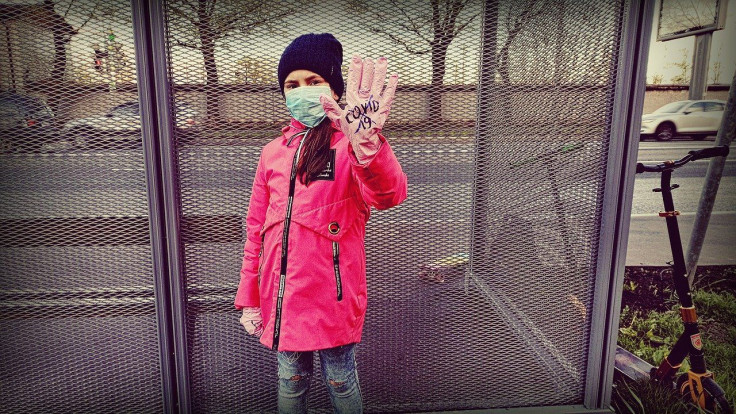Did Some People Attain Immunity From Coronavirus? Experts Look At Kids For Answer

KEY POINTS
- With surging coronavirus cases, many wonder if there are already people immune to this virus
- Experts are looking at kids for possible answers
- Kids under age 10 do not get easily infected with COVID-19
Amid the worsening coronavirus crisis, one of the questions in the minds of many people right now is if there are people immune to COVID-19; experts hope kids could provide the answer.
Researchers are trying to find out why some people, particularly kids, when exposed to coronavirus develop only mild or no symptoms at all. A new British study suggests that if a considerable percentage of the population is immune to COVID-19, then it is possible to attain herd immunity sooner than previously thought. Their finding highlights the importance of understanding how many people can be immune.
According to Dr. William Schaffner, an infectious disease professor at Vanderbilt University, they already know that it is not unusual for some people not to have the infection when other members of their family contract COVID-19. Dr. Antonio Bertoletti, an infectious disease professor at Singapore's Duke NUS Medical School, agrees, saying that around 50% of healthy patients have T cells that can recognize SARS-CoV-2 early on and form a protective shield and immunity against the virus.
T cells are among the adaptive immune system's major components. One of their roles is to kill infected host cells upon recognition of a pathogen or alien substance, such as a virus.
Bertoletti and his research team found that healthy people who did not have SARS-CoV-2 have detectable T cells for the virus, ABC News reported. Experts hypothesized that exposure to other common and seasonal coronaviruses may have prompted the production of long-lasting T cells, which can also be good at identifying or detecting the novel coronavirus.
T cells function by identifying specific genetic sequences in a virus. Since common and seasonal coronavirus that causes common colds are from the same family of pathogens with similar genetic sequences, T cells formed for a specific coronavirus may be able to recognize another kind.
Experts refer to this phenomenon as "cross-reactivity," which is the direct competition between a particular molecule and other molecules for anti-body binding sites because of similarity in structure. While experts admit getting excited with the finding, they are not yet convinced this is the reason why some people get sicker compared to others after contracting COVID-19.
Bertoletti said they are not 100% sure whether such cross-reactivity protects people from coronavirus infection or whether it minimizes the severity of the symptoms. Other experts claimed the original virus amount, or "viral dose," a person is exposed to may determine how sick such a patient can get.
Part of the reason why some people are sicker than others may be the dose, said Schaffner, adding that some people get a bigger dose of the virus, which is why they are likely to become more ill.
For Dr. Todd Ellerin, infectious diseases director at South Shore Hospital, it is not the viral load. "Is there something about your immune system that doesn't allow the virus to take hold?" Ellerin asked.
Some experts hope to find the answer in kids since children typically experience only mild or no symptoms when contracting COVID-19. "There has been some recent data to suggest that one of the breakpoints is about age 10. That is, [after age 10], they get infected, can transmit the virus, but don't get as seriously ill, whereas kids under the age of 10 seem not to get infected as readily," Schaffner explained.
His hypothesis is that the location where the virus adheres itself to penetrate the body is not well developed yet in children. If the pathogen cannot anchor well to the area, then it is less likely to cause serious infection in younger people. He admitted though that this is just a hypothesis that has not been proven.
Ellerin postulated another theory. He suspected that kids possess more circulating antibodies since they are typically infected more with other common types of coronaviruses. He emphasized, however, that it is only his guess. Some experts theorized that children have a limited number of sites where the virus can enter. Others said that recent doses of vaccines may have boosted their total immune response.
© Copyright IBTimes 2025. All rights reserved.





















